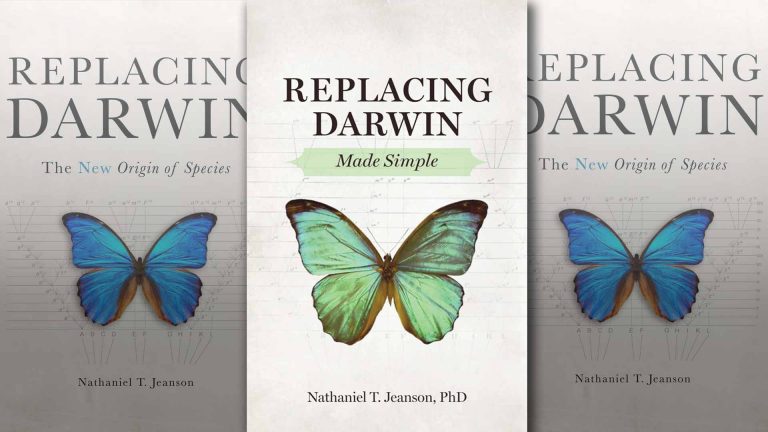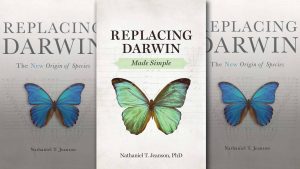News
Saturday Selections – April 27, 2024
Click the titles below to go to the linked articles...
Strawman and other logical fallacies
Here's a fun way to get our kids to really understand how logical fallacies can be used – deliberately or not – to misdirect and confuse discussions. Watch below, and click the title above for a list of fallacies (including the strawman) you can work with.
View this post on Instagram
Horribly neglected patient "chooses" euthanasia
A quadriplegic Quebec man, stuck on an emergency room stretcher for four days, developed a bed sore so bad it left bone exposed. After being denied even the bed he needed, Normand Meunier then "chose" to be euthanized. Having doctors murder patients is portrayed as compassion. What it really is, is cheap and easy.
"Even the compassion of the wicked is cruel" (Prov. 12:10b).
Are you financially literate? 5 questions to find out
Christians are called to be good stewards of what God gives us but it isn't harder for some than others. Here's 5 questions to help you figure out where you are at.
Why is teen anxiety on the rise?
The author of Why is my Teenager Feeling Like This? shares 4 thoughts...
Caring for the adopted child
Our kids' frustrating misbehaviors will often be a matter of déjà vu for parents who recognize they acted similarly when they were kids. But adoptive parents can face the additional challenge of dealing with behaviors they haven't seen before, perhaps because of their children's very different history, or physiological repercussions that might have come from having an alcohol- or drug-addicted birth mom. So how can adoptive parents be sensitive to their child's different needs, without succumbing to the temptation of just excusing bad behavior? Two biblical counselors offer some helpful biblical advice.
Global warming isn't making weather more extreme
If you listen to David Suzuki, Al Gore, or Greta Thunburg, you'd have every reason to believe that global warming was causing an increasing number of, and severity of, droughts, floods, hurricanes, and forest fires. But a new study by the Fraser Institute says, it simply isn't so.
Click on the title above for their report, or watch the video below for Dr. Judith Curry's take. And for why we might consider them both more credible than their more mainstream critics, see my "Catastrophic Global Warming? A brief biblical case for skepticism."
Interview with an artist
Hetty Veldkamp’s landscapes began with a birthday
Interview with an artist
*****
 Lighthouse at Snug Harbour
Lighthouse at Snug Harbour
36" x 24”
“Taken last year when a friend gave us a boat ride to Snug Harbour, near Killbear Park. As we were entering the harbor, the sun was low and casting a warm glow on everything. It was such a beautiful moment and i tried to capture it in this painting.”
Years ago, Hetty Veldkamp retired from a successful career in graphic design to raise her family. But then, two decades later, a birthday gift she created for her husband launched her second artistic career, this time as a landscape painter.
She’d always been drawn to art. When she was younger Hetty would often create pencil drawings, just for fun, based on photos from magazines or advertisements. Her high school art teacher saw potential in her work and encouraged Hetty to consider art as a career.
After studying illustration and graphic design at Sheridan College, Hetty accepted a job as a graphic designer/coordinator with the Alberta government’s Public Affairs Bureau. She designed brochures, report covers, and logos for the various government departments. Then in the evenings Hetty would work on freelance projects or paint small watercolor paintings which she sold to friends and colleagues. “I was busy with everything art.” But when she and her husband decided to have a family, Hetty took a break from art-making.
That break would last 25 years.
For as long as she can remember Hetty has also been drawn to nature. She grew up beside the sea, living in a quaint fishing village in the Netherlands. She later settled in the rural Niagara Region in southern Ontario after immigrating to Canada with her parents. In the years that followed, Hetty and her family explored the many different regions of Ontario’s “cottage country” and Hetty became “hooked on the peace and beauty found there.”
“I have always enjoyed the great outdoors, hiking, camping, and cottaging. The vistas of Northern Ontario, Kilarney, Algonquin, and Killbear Provincial Parks; Georgian Bay and the landscapes of northeastern Ontario are a real inspiration to me.”
 Lily on a Summer Day
Lily on a Summer Day
40" x 20"
“This one was inspired while kayaking near a friend's cottage. It was summer and so peaceful, the lilies just seem so calm and serene. Lilies are a popular subject, and I paint them often.”
For her, they all brought the words of Psalm 8 to mind; “How majestic is your name in all the earth!”
It was those experiences and memories of those landscapes, previously painted by members of the famous Group of Seven, that inspired Hetty to pick up her brushes again. First she painted a painting as a gift to her husband for his birthday. She didn’t stop there. Many more paintings followed, some successful and some not so much. But Hetty persevered. She now has no problem selling everything she produces. Scenes of Ontario’s north feature prominently in her vast portfolio on her website. Judging by the number of paintings that are labeled “SOLD,” the scenes are popular with buyers too!
Hetty lives and works in Richmond Hill, Ontario. Working primarily in oil paint she works to capture her love of the outdoors and the peace she finds there.
“The lakes, trees, islands and rocks are beautiful; the ever-changing skies and water continue to inspire me.”
I remember Hetty speaking at my high school for a career day – she was one of the people who inspired me to pursue illustration and design. I even studied at the same college as she did!
You can see more of Hetty’s artwork on Facebook, Instagram, or at ArtByHetty.com. You can also email her at [email protected].
Jason Bouwman loves landscape painting too. Find his work at JasonBouwman.com and send him suggestions for artists to profile at [email protected].
Today's Devotional

April 27 - The fruit of the Spirit - Gentleness
“Put on then, as God’s chosen ones, holy and beloved, compassion, kindness, humility, meekness, and patience.” - Colossians 3:12
Scripture reading: Colossians 3:1-17
The Greek word for “gentleness” (prautes) in Galatians 5’s fruit of the Spirit is often translated “meekness” as in our Colossians 3 passage today. It is the same word Jesus used in the Sermon on the Mount when He said, “Blessed…
Today's Manna Podcast

The Keys of the Kingdom: The Heidelberg Catechism
Serving #460 of Manna, prepared by Jake Torenvliet, is called "The Keys of the Kingdom" (The Heidelberg Catechism).

































































































